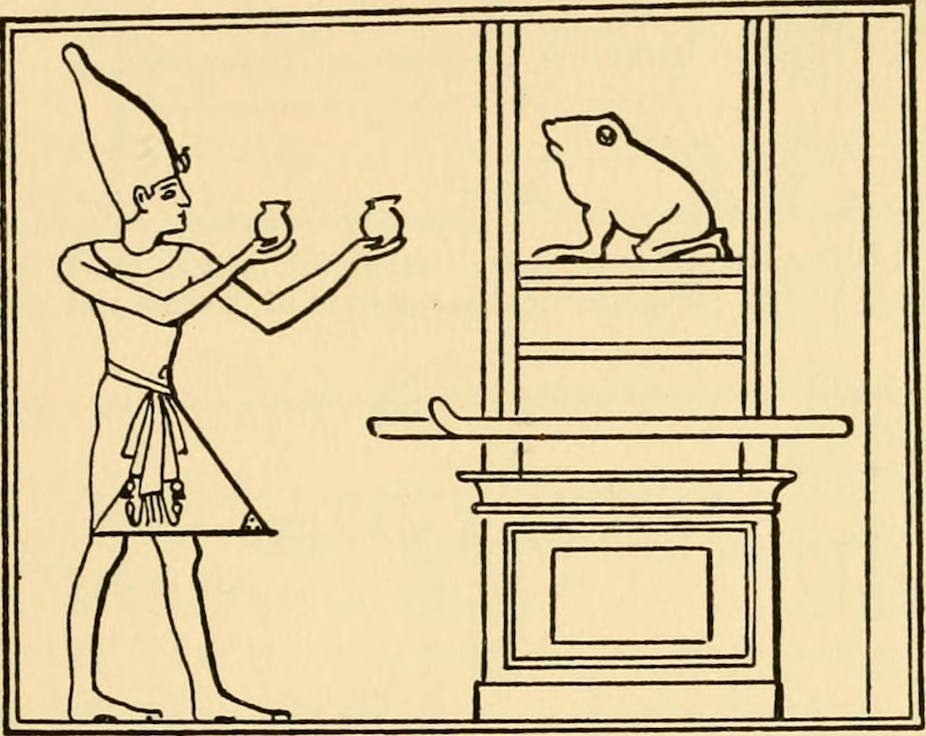
japanese culture
The Japanese believed that the frog was a symbol of fortune and good luck. While the kanji (letters) involved in writing the words are different, it is pronounced the same way you say "return/to return".
In short, frogs can be linked with things/people returning to a place or origin.The idea is that what you have given away will at some point 'return'.
For example, if you kept money in, lets say a purse with a frog button on it, it was believed that the money would return (or you would gain wealth).

native american culture
The perspective on frogs varied from tribe to tribe. A few tribes believed the frog was a symbol of healing powers, fertility, wealth, and/or a happy afterlife.
In some Native American traditions, the frog is often seen as a 'rain maker'. Many held the belief that it could call rain or control the weather. Others believed the frog possessed bad luck or misfortune.
Frogs can be found carved on totem poles, or imbued in tribal dance traditions. They are even considered clan animals among some tribes.

egyptian culture
To the Egyptians, the frog was an ancient symbol of fertility, related to the annual flooding of the Nile. There was a similarly held belief that frogs could call the rain. Moreover, ancient Egyptians associated frogs with reproduction and abundance. There was an Egyptian frog deity in the form of Goddess Heqet, and she was revered as an important deity of fertility. Because she was worshipped as a goddess of childbirth and new life, she was often depicted as a frog headed goddess or even just a frog.